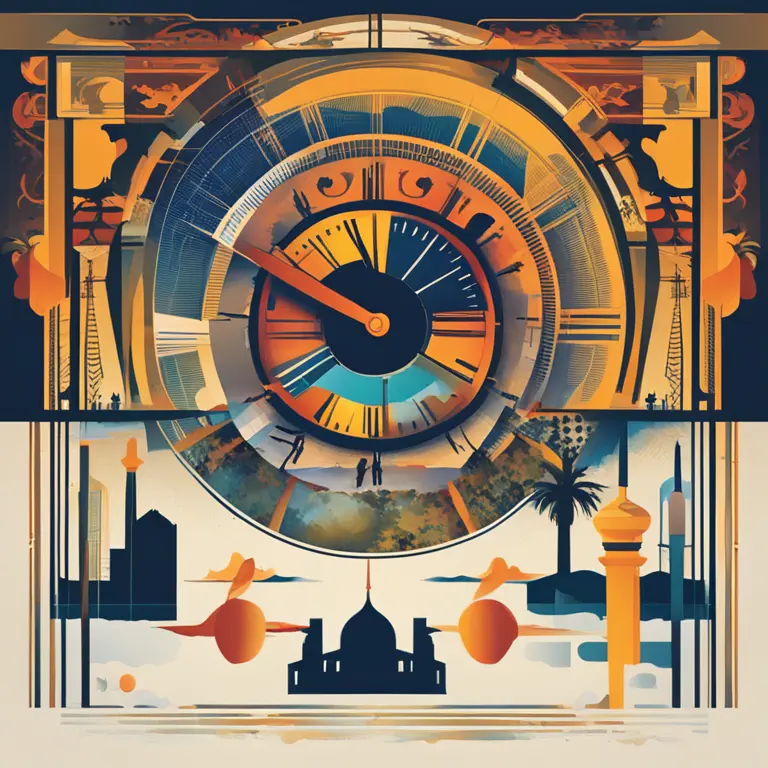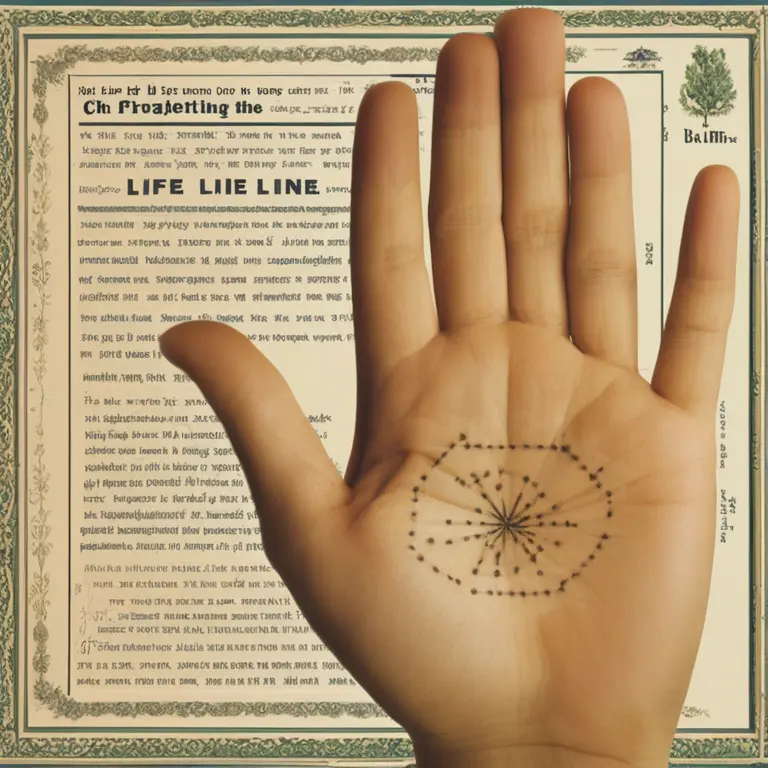
The Palmistry Life Line: Insights into Length and Significance
Discover the myths and misconceptions about the palmistry life line and what it really signifies about longevity and vitality in our lives.
article by Nora Pennington
The Life Line: An Introduction
Palmistry, or chiromancy, is the art of characterizing and foretelling the future through the study of the palm. Among the various lines that palmists examine, the life line is perhaps the most famous—and misunderstood. Contrary to popular belief, the life line doesn't predict the length of one's life. It's thought to provide insight into a person's vitality, major life changes, and well-being. In this article, we dispel myths and delve into what the life line genuinely represents within the realms of palmistry.

The Myth of the Life Line and Death
Across cultures, there's a persistent myth that a short life line equates to an untimely death. However, palmists from 2024 and beyond emphasize that such a reading is a misconception. In reality, the life line reflects aspects such as physical stamina, general health, and life changes. A short or faint life line may indicate a lack of energy or a period of significant transformation—not necessarily a reduced lifespan.

Reading the Life Line: Length and Depth
The length and depth of the life line are unique to each individual and carry various meanings. A long, deep line suggests robust health and vitality, while a short, deep line indicates a person who may be able to overcome health challenges due to their inherent strength. Palmists now introduce refined techniques that look for markers such as breaks or chains in the line, which can signal transformative life experiences or periods of instability.

Variations in the Life Line
There are numerous variations in the way a life line can present itself. For instance, a life line that splits into two can suggest an adaptable approach to life's challenges. A life line that runs close to the thumb can indicate limited energy reserves, advising one to monitor their health. As modern palmistry evolves, practitioners are learning to interpret these variations with more subtlety and context.

The Influence of Other Lines and Marks
In contemporary palmistry, the life line is not viewed in isolation. Its interpretation also depends on the interaction with other lines on the palm, such as the head line and the heart line. Crosses, stars, or dots along the life line can indicate specific events or health-related incidents. The evolving consensus is that these markers can be seen as signposts for periods of caution or action, rather than foreboding omens.
Cultural Shifts in Palmistry Perspectives
As we progress through 2024 and beyond, there's a visible shift in how people perceive and value palmistry. Once regarded as a predictive tool, it is increasingly used as a form of self-reflection and self-improvement. The aim is not to forecast an unalterable future but to understand tendencies and potentials. In this way, the life line, along with other aspects of palmistry, is used to empower individuals rather than to instill fear of predetermined destinies.
Seeking Professional Palmistry Advice
For those interested in exploring what their life line may suggest about their physical and emotional journey, consulting with a professional palmist is recommended. A qualified reader will interpret your life line within the context of your entire palm and personal circumstances, offering insights that are relevant and unique to your life. It is an intimate and personalized experience that goes beyond generic interpretations and considers the complexity of individual existence.
Published: 2/1/2024
Modified: 2/1/2024
More predictions
Come back here soon to learn more about yourself and your future


An Introduction to Palmistry: Insights from Your Hands
Discover the art of palm reading and how the lines and shapes of your hands can reveal personal insights and future possibilities.


The Palmistry Guide to Your Success Line
Discover the insights your palms hold about your path to success and how palmistry can reveal your potential for prosperity and achievement.


The Essence of Palmistry: Journey Through Hand Analysis
Grasp the basics of palmistry and learn how to interpret the lines and shapes in your hands for insights into personality and destiny.